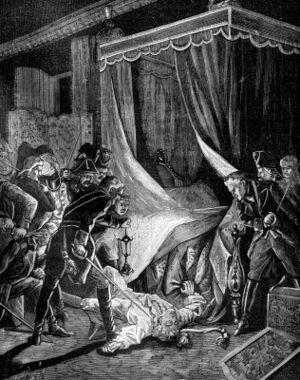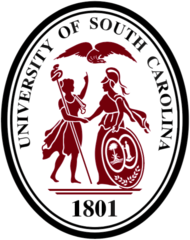1801
Jump to navigation
Jump to search
1791 < 1792 < 1793 < 1794 < 1795 < 1796 < 1797 <1798 < 1799 < 1800 < 1801 > 1802 > 1803 > 1804 > 1805 > 1806 > 1807 > 1808 > 1809 > 1810 > 1811
 Tsar Paul I is murdered, possibly a British plot | |
| year 1801 |
Contents
Events
- January 1 - The legislative union of Great Britain and Ireland is completed under the Act of Union 1800, bringing about the United Kingdom of Great Britain and Ireland, and abolition of the Parliament of Ireland.
- January 3 – Toussaint Louverture triumphantly enters Santo Domingo, the capital of the former Spanish colony of Santo Domingo, which has become a colony of Napoleonic France.
- February 4 – William Pitt the Younger resigns as Prime Minister of the United Kingdom.
- February 9 – The Treaty of Lunéville ends the War of the Second Coalition between France and Austria.
- February 17 – An electoral tie between Thomas Jefferson and Aaron Burr is resolved, when Jefferson is elected President of the United States and Burr Vice President by the United States House of Representatives.
- March 4 – Thomas Jefferson is sworn in as the third President of the United States.
- March 10 – The first census is held in Great Britain. The population of England and Wales is determined to be 8.9 million,[1] with London revealed to have 860,035 residents. 1.5 million people live in cities of 20,000 or more in England and Wales, accounting for 17% of the total English population.
- March 14 – Henry Addington becomes First Lord of the Treasury and Chancellor of the Exchequer, effectively Prime Minister of the United Kingdom.
- March 21 – Battle of Alexandria in Egypt: British troops defeat the French, but the British commander, Sir Ralph Abercromby, dies later of a wound received in the action.
- March 23 – Tsar Paul I of Russia is murdered; he is succeeded by his son Alexander I.
- April 2 – War of the Second Coalition – First Battle of Copenhagen: The British Royal Navy, under Admiral Sir Hyde Parker, forces the Royal Dano-Norwegian Navy to accept an armistice. Vice-Admiral Horatio Nelson leads the main attack, deliberately disregarding his commander's signal to withdraw. He is created a Viscount on May 19; Denmark-Norway is forced to withdraw from the Second League of Armed Neutrality.
- July 7 – Toussaint Louverture promulgates a reforming constitution for Santo Domingo, declaring himself emperor for life of the entire island of Hispaniola, and nominally abolishing slavery.
- July 12 – Second Battle of Algeciras: The British fleet defeats the French and Spanish fleets.
- July 18 – Napoleon signs a Concordat with Pope Pius VII.
- August 1 – First Barbary War – Action of 1 August 1801: United States Navy schooner USS Enterprise captures 14-gun Tripolitan corsair polacca Tripoli off the north African coast, in a single-ship action.
- September 30 – The Treaty of London is signed for preliminary peace between the French First Republic and the United Kingdom of Great Britain and Ireland.
- November 16 – The first edition of the New-York Evening Post is printed.
- December 15 – Hadži Mustafa Pasha, Ottoman commander and politician, is assassinated in Belgrade, Sanjak of Smederevo, by Kučuk-Alija.
A New Group
| Group | Image | Type | Description |
|---|---|---|---|
| University of South Carolina |  | University Research Flagship State university Sea-grant university | Biggest university in South Carolina |
Births
| Title | Born | Place of birth | Died | Summary | Description |
|---|---|---|---|---|---|
| William H. Seward | 16 May 1801 | 10 October 1872 | Politician Deep state actor | ||
| Frédéric Bastiat | 29 June 1801 | France Bayonne | 24 December 1850 | Economist | French economist "When plunder becomes a way of life for a group of men in a society, over the course of time they create for themselves a legal system that authorizes it and a moral code that glorifies it." |
Many thanks to our Patrons who cover ~2/3 of our hosting bill. Please join them if you can.